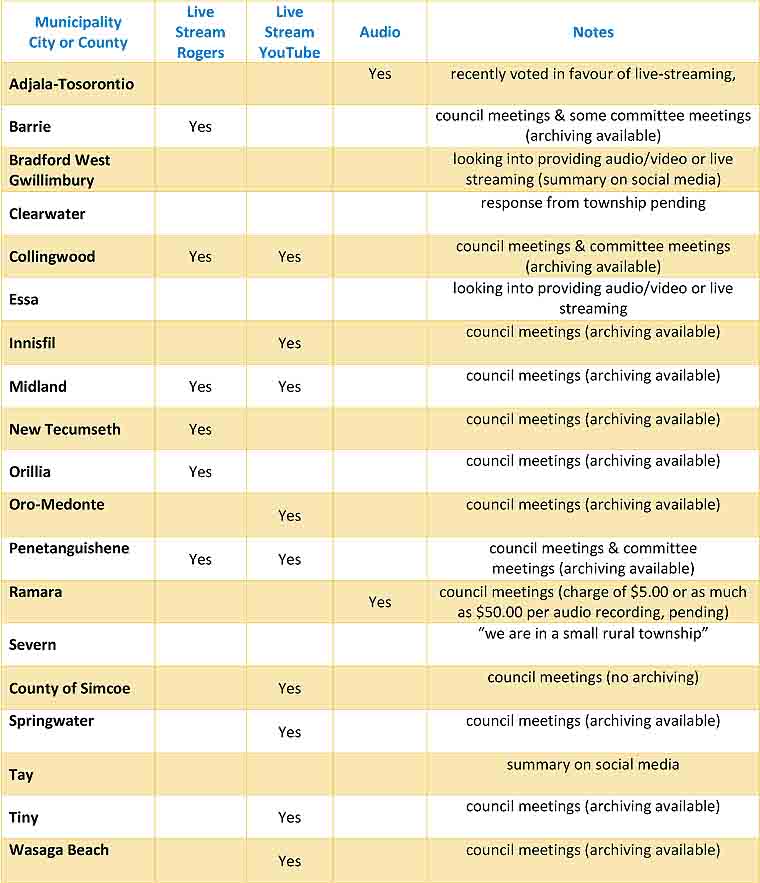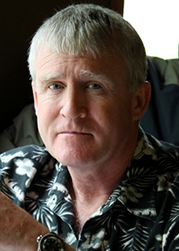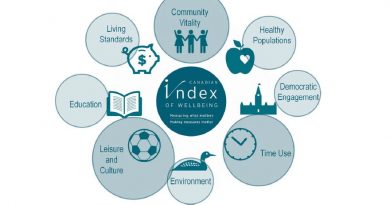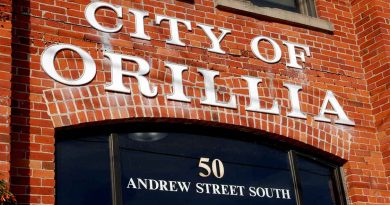Ramara Township To Charge For Audio Recordings Of Council Proceedings
Editorial by Mike Douglas
At Ramara Township’s May 6 committee of the whole council meeting the agenda contained a report, regarding amendments to the fees and charges by-law. An objectionable addition staff recommended is a new charge of $5 to provide audio recordings of council meetings. Worse, residents have to provide their own memory sticks for audio files to be copied to.
Various council members were quick to justify a fee and some also thought it should be $20.The highest bid, $50, came from Mayor Basil Clarke.
Records of meetings are a way for councils to keep residents updated on what they’re up to. It is preferable to see residents at council meetings, however there are extenuating circumstances such as people with hearing impairments, physical disabilities limiting travel, or travelling distances in bad weather which keep some away. One can also argue that it’s environmentally preferable to have residents not drive to attend municipal council meetings.
There is of course the obvious opportunity to have instantly recorded information of what has transpired during council proceedings that is also archivable. Charging for access to recordings of council meetings should not be tolerated.
Councils that livestream meetings are councils that are comfortable with their decision-making process and willing to explain what they have done and why. Councils that throw up barriers to citizens getting information about what their elected officials are doing are sending a message that they have something to hide, and they have little respect for the citizens.
Openness, accountability, and honesty define transparency. In a free society, transparency is government’s obligation to share information with citizens. It is at the heart of how citizens hold their public officials accountable. Gaining access to meeting information is one way of allowing citizens a way of seeing their representatives in action. Charging a fee sends a message to the public that there is something to hide. Council meetings must be open to the public, even after the fact.
There are many reasons a person may want to listen to an audio recording. Some work during the time meetings take place, or they have some other obligations that don’t allow them to attend in person, or simply, they do not have transportation to get them to the meetings. Perhaps more people would become more involved in their community if they had the opportunity to freely access the information.
Most Simcoe County offer live streaming via Rogers and YouTube access to council meetings at no cost. The question is why does Ramara Township want to charge the public a fee for audio recordings? This is information that should be readily available to the taxpayer, who is already paying the municipality for the services they receive.
If all Ramara Township can do is record audio, copying it takes seconds, uploading it to a publicly accessible page on their website takes minutes. Making it downloadable a matter of ticking a box, and then leave it up to citizens if they wish to listen of save it on their own computers.The same applies to livestream videos of meetings, and almost every council in Simcoe County has livestream of their meetings. Only offering audio and charging for it is not providing good service or transparency.


Mike Douglas is a Ramara resident of 25 years. He follows township council meetings and happenings closely and will contribute to SUNonline/Orillia on those matters. And, as a member of several environmental groups like Concerned Citizens of Ramara, Ontario Soil Regulation Task Force, AWARE Simcoe, Couchiching Conservancy, Ontario Nature, Rescue Lake Simcoe Coalition, Simcoe County Greenbelt Coalition, Ontario Greenbelt Alliance and Environmental Defense he will be sharing his insight on environmental concerns.
(Photo by Stas Knop – Pexels)



